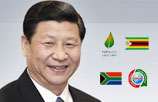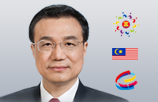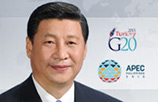Macri topples Argentina's Peronists, tough reforms ahead
(Agencies) Updated: 2015-11-24 15:50The 56 year old faces a number of economic challenges. Slow growth is driven by unsustainable spending, inflation is at well above 20 percent and capital controls have backfired to leave foreign reserves at nine-year lows.
The country is also mired in a messy debt default that is blocking access to global credit markets.
Macri, who served two terms as mayor of Buenos Aires, has promised to dismantle a web of currency controls and trade restrictions that have deterred investors and hobbled growth.
Policy changes such as eliminating hefty taxes on grains exports and revamping economic data long viewed as manipulated by Fernandez's government will be quick hits to underscore his intent to bring change.
But elsewhere he will have to move carefully.
Removing capital controls that have curbed access to dollars and unifying a multi-tiered exchange rate may lead to a sharp devaluation which, while needed to restore trade competitiveness, will likely feed into consumer prices.
In the final stages of campaigning, Macri indicated he favored a more staggered lifting of currency curbs.
"We cannot solve all the problems that this government is leaving behind on the first day," Macri said ahead of the run-off vote on Sunday.
He is expected to scale back energy and transport subsidies in his first year in order to narrow a yawning fiscal deficit.
Economists estimate about 20 percent of government spending is on subsidies, but weaning Argentines off cheap power and transport may prove unpopular.






